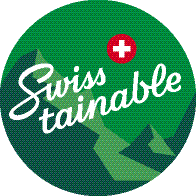Meet sustainably in Switzerland
Inleiding
It is well known, that the Swiss are particularly sustainable: Consistent recycling, rigid exhaust emissions standards, good waste management, carefully controlled landscape planning and strict conditions for construction projects are just part of our every-day life. Below you will find more examples of our daily effort for a respected environment and a sustainable future.

A new approach to travel
Sustainable travel doesn’t necessarily mean having to live without it completely. Sustainable travel means greater awareness and depth and more enjoyment. With this in mind, Switzerland follows its own sustainability strategy: Swisstainable.
Swisstainable is all about having one’s finger on the pulse – and maximum relaxation in a natural setting:
- Enjoy nature up close and at first hand
- Experience the local culture in an authentic way
- Consume regional products
- Stay for longer and delve deeper
SWISS International Airlines and it's environmental responsibility
The airline has ambitious goals for reducing CO2:
Flight operations
By 2030: 50% reduction in net CO2 emissions compared to 2019
By 2050: CO2-neutral aviation (‘net zero’)
Ground operations
Since 2019: use of green energy only
By 2030: CO2-neutral mobility
Read here with what efforts they want to achieve this targets
Global Destination Sustainability Movement (GDS)
Six Swiss Destinations have entered a partnership with the GDS-movement. Their index evaluates and rates the social and environmental performance of a destination. This contributes to an improvement in performance and helps to create sustainable meeting destinations in the longer term.